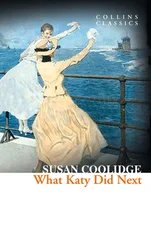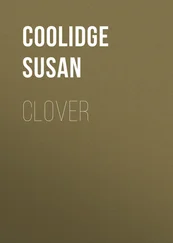Susan Coolidge - A Little Country Girl
Здесь есть возможность читать онлайн «Susan Coolidge - A Little Country Girl» — ознакомительный отрывок электронной книги совершенно бесплатно, а после прочтения отрывка купить полную версию. В некоторых случаях можно слушать аудио, скачать через торрент в формате fb2 и присутствует краткое содержание. Жанр: foreign_prose, foreign_children, на английском языке. Описание произведения, (предисловие) а так же отзывы посетителей доступны на портале библиотеки ЛибКат.
- Название:A Little Country Girl
- Автор:
- Жанр:
- Год:неизвестен
- ISBN:нет данных
- Рейтинг книги:5 / 5. Голосов: 1
-
Избранное:Добавить в избранное
- Отзывы:
-
Ваша оценка:
- 100
- 1
- 2
- 3
- 4
- 5
A Little Country Girl: краткое содержание, описание и аннотация
Предлагаем к чтению аннотацию, описание, краткое содержание или предисловие (зависит от того, что написал сам автор книги «A Little Country Girl»). Если вы не нашли необходимую информацию о книге — напишите в комментариях, мы постараемся отыскать её.
A Little Country Girl — читать онлайн ознакомительный отрывок
Ниже представлен текст книги, разбитый по страницам. Система сохранения места последней прочитанной страницы, позволяет с удобством читать онлайн бесплатно книгу «A Little Country Girl», без необходимости каждый раз заново искать на чём Вы остановились. Поставьте закладку, и сможете в любой момент перейти на страницу, на которой закончили чтение.
Интервал:
Закладка:
"My dear child, you are crying," she exclaimed; and in another minute Candace, she scarcely knew how, was in Mrs. Gray's arms, they were sitting on the sofa together, and she was finishing her cry with her head on the kindest of shoulders and an unexpected feeling of comfort at her heart. Anything so soft and tender as Cousin Kate's arms she had never known before; there was a perfume of motherliness about them which to a motherless girl was wholly irresistible. Gertrude declared that mamma always stroked people's trouble away with those hands of hers, and that they looked just like the hands of the Virgin in Holbein's Madonna, as if they could mother the whole world.
"Now, tell me, Cannie, tell me, dear child," said Mrs. Gray, when the shower was over and the hard sobs had grown faint and far between, "what made you cry? Was it because you are tired and a little homesick among us all, or were you troubled about anything? Tell me, Cannie."
"Oh, it's only because I'm so stupid and – and – countrified," said Candace, beginning to sob again. "I made such horrid mistakes at dinner, and Gertrude wanted to laugh, – she didn't laugh, but I saw her want to, – and Marian did laugh, and I felt so badly."
"Marian is such a little girl that you must forgive her this once," said Mrs. Gray, "though I am rather ashamed of her myself. I saw all your 'mistakes,' as you call them, Cannie, even one or two that you didn't see yourself. They were very little mistakes, dear, not worth crying about, – small blunders in social etiquette, which is a matter of minor importance, – not failures in good feeling or good manners, which are of real consequence. They did not make anybody uncomfortable except yourself."
"Cousin Kate," Candace ventured to ask, "will you tell me why there is such a thing as etiquette? Why must everybody eat and behave and speak in the same way, and make rules about it? Is it any real use?"
"That is rather a large question, and leads back to the beginning of things," said Mrs. Gray, smiling. "I don't suppose I quite understand it myself, but I think I can make you understand a part of it. I imagine, when the world was first peopled, in the strange faraway times of which we know almost nothing except the hints we get in the Bible, that the few people there were did pretty much as they liked. Noah and his family in the ark, for instance, probably never set any tables or had any regular meals, but just ate when they were hungry, each one by himself. Savage tribes do the same to this day; they seize their bone or their handful of meat and gnaw it in a corner, or as they walk about. This was the primitive idea of comfort. But after a time people found that it was less trouble to have the family food made ready at a certain time for everybody at once, and have all come together to eat it. Perhaps at first it was served in one great pot or dish, and each one dipped in his hand or spoon. The Arabs still do this. Then, of course, the strongest and greediest got the most of everything, and it may have been some weak or slow person who went hungry in consequence, who invented the idea of separate plates and portions."
"But that is not etiquette," objected Cannie. "People have plates and set tables everywhere now, – in this country, I mean."
"Yes, but can't you imagine a time when to have a bowl or a saucer to yourself was considered finical and 'stuck up,' and when some rough Frank or Gaul from the mountains looked on disapprovingly, and said that the world was coming to a pretty pass if such daintiness was to be allowed? A bowl to one's self was etiquette then. All sorts of things which to us seem matter of course and commonplace, began by being novelties and subjects for discussion and wonderment. Remember that tea, potatoes, carpets, tobacco, matches, almost all our modern conveniences, were quite unknown even so lately as four or five hundred years ago. As the world grew richer, people went on growing more refined. The richest folks tried to make their houses more beautiful than the houses of their neighbors. They gave splendid feasts, and hired sculptors and artists to invent decorations for their tables, and all kinds of little elegant usages sprang up which have gradually become the custom of our own day, even among people who are not rich and do not give feasts."
"But do they mean anything? Are they of any real use?" persisted Cannie.
"I confess that some of them do not seem to mean a great deal. Still, if we look closely, I think we shall find that almost every one had its origin in one of two causes, – either it was a help to personal convenience, or in some way it made people more agreeable or less disagreeable to their neighbors. We have to study, and to guess a little sometimes, to make out just why it has become customary to do this or that, for the original reason has been forgotten or perhaps does not exist any longer, while the custom remains."
"I wonder," said Cannie, whose mind was still running on her own mishaps, "why people mustn't cut fish with a steel knife. I read in a book once that it was not genteel to do so, and I couldn't think why. And then to-night I didn't see the little silver one – "
"I imagine that in the first instance some old gourmet discovered or fancied that a steel knife gave a taste to fish which injured it. So people gave up using knives, and it grew to be said that it was vulgar and a mark of ignorance to cut fish with them. Then, later, it was found not to be quite comfortable always to tear your bit of fish apart with a fork and hold it down with a piece of bread while you did so, and the custom arose of having a silver knife to cut fish with. It is a convenient custom, too, for some reasons. Waiting on table is quite an art, now-a-days, when there are so many changes of plates, and a good waiter always tries to simplify what he has to do, by providing as much as possible beforehand. You can see that if each person has beside his plate a silver knife for fish and a steel knife for meat and two forks these two courses will go on more easily and quietly than if the waiter has to stop and bring a fresh knife and fork for each person before he helps to the dish, whatever it is."
"But why is there nothing on the table but flowers and pretty little things? And why do they put lemon-peel in the bowls of water?"
"Well, the lemon is supposed to take the smell of dinner away from the fingers. And it isn't always lemon. Frederic is apt to drop in a geranium leaf or a sprig of lemon-verbena, and those are nicer. As for the other thing, it is more convenient for many reasons not to have the carving done on the table; but aside from that, I imagine that in the first instance the custom was a matter of economy."
"Economy!" repeated Candace, opening wide her eyes.
"Yes, economy, though it seems droll to say so. In the old days, when the meat came on in a big platter, and the vegetables each in its large covered dish, people had to put more on table than was really wanted, for the sake of not looking mean and giving their neighbors occasion for talk. Now, when everything is carved on a side-table and a nice little portion carried to each person, you are able to do with exactly what is needed. There need not be a great piece of everything left over for look's sake. One chicken is enough for four or five people if it is skilfully carved, but the chicken would look rather scanty on a platter by itself; don't you think so?"
"Yes," said Cannie, with a little laugh. She had forgotten her troubles in the interest of the discussion.
"A dish containing one mutton-chop and a spoonful of peas for each person would be called a stingy dish in the country, where every one sees his food on the table before him," continued Mrs. Gray; "but it is quite enough for the single course it is meant to be at a city dinner. There is no use in having three or four chops left over to toughen and grow cold."
Читать дальшеИнтервал:
Закладка:
Похожие книги на «A Little Country Girl»
Представляем Вашему вниманию похожие книги на «A Little Country Girl» списком для выбора. Мы отобрали схожую по названию и смыслу литературу в надежде предоставить читателям больше вариантов отыскать новые, интересные, ещё непрочитанные произведения.
Обсуждение, отзывы о книге «A Little Country Girl» и просто собственные мнения читателей. Оставьте ваши комментарии, напишите, что Вы думаете о произведении, его смысле или главных героях. Укажите что конкретно понравилось, а что нет, и почему Вы так считаете.












